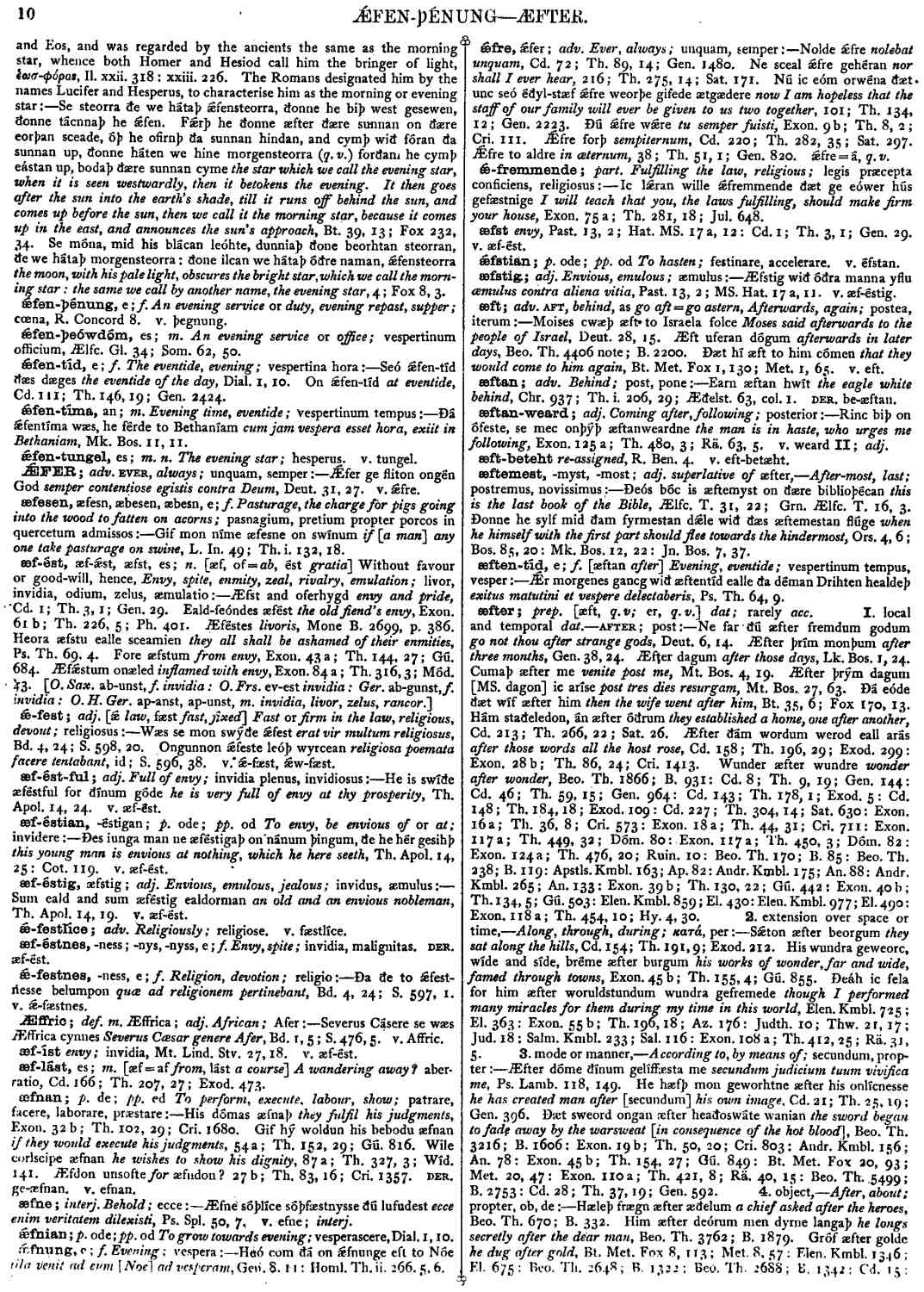æf-ést
- noun [ neuter ]
-
Æfst and oferhygd
envy and pride,
- Cd. 1; Th. 3, 1 ;
- Gen. 29 .
-
Eald-feóndes æfést
the old fiend's envy,
- Exon. 61 b; Th. 226, 5 ;
- Ph. 401 .
-
Æféstes
livoris,
- Mone B. 2699, p. 386 .
-
Heora æfstu ealle sceamien
they all shall be ashamed of their enmities,
- Ps. Th. 69, 4 .
-
Fore æfstum
from envy,
- Exon. 43 a ; Th. 144, 27 ;
- Gú. 684 .
-
Æfǽstum onæled
inflamed with envy,
- Exon. 84 a ; Th. 316, 3 ;
- Mód. 43 .
Bosworth, Joseph. “æf-ést.” In An Anglo-Saxon Dictionary Online, edited by Thomas Northcote Toller, Christ Sean, and Ondřej Tichy. Prague: Faculty of Arts, Charles University, 2014. https://bosworthtoller.com/424.
Checked: 1